Sergio Alvarez Napagao
Global Data Science Project for COVID-19 Summary Report
Jun 10, 2020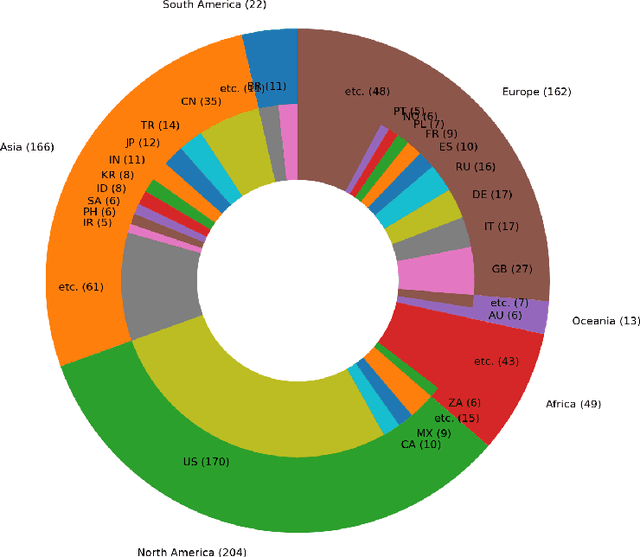

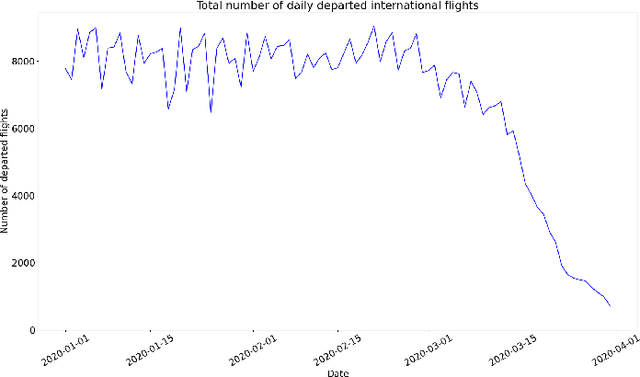
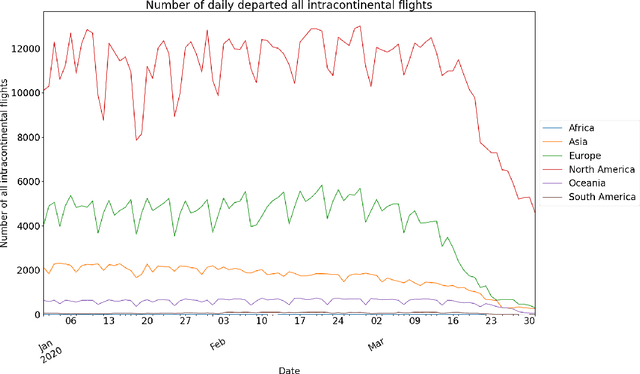
Abstract:This paper aims at providing the summary of the Global Data Science Project (GDSC) for COVID-19. as on May 31 2020. COVID-19 has largely impacted on our societies through both direct and indirect effects transmitted by the policy measures to counter the spread of viruses. We quantitatively analysed the multifaceted impacts of the COVID-19 pandemic on our societies including people's mobility, health, and social behaviour changes. People's mobility has changed significantly due to the implementation of travel restriction and quarantine measurements. Indeed, the physical distance has widened at international (cross-border), national and regional level. At international level, due to the travel restrictions, the number of international flights has plunged overall at around 88 percent during March. In particular, the number of flights connecting Europe dropped drastically in mid of March after the United States announced travel restrictions to Europe and the EU and participating countries agreed to close borders, at 84 percent decline compared to March 10th. Similarly, we examined the impacts of quarantine measures in the major city: Tokyo (Japan), New York City (the United States), and Barcelona (Spain). Within all three cities, we found the significant decline in traffic volume. We also identified the increased concern for mental health through the analysis of posts on social networking services such as Twitter and Instagram. Notably, in the beginning of April 2020, the number of post with #depression on Instagram doubled, which might reflect the rise in mental health awareness among Instagram users. Besides, we identified the changes in a wide range of people's social behaviors, as well as economic impacts through the analysis of Instagram data and primary survey data.
The Impact of COVID-19 on Flight Networks
Jun 05, 2020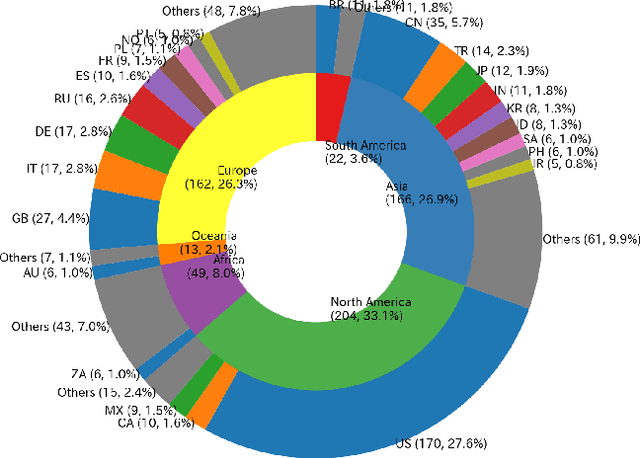
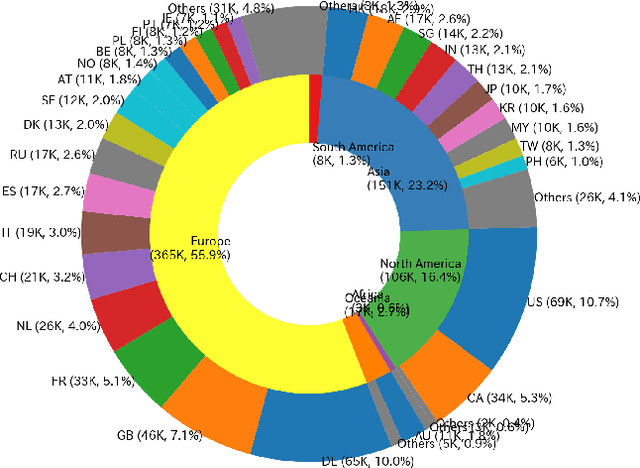
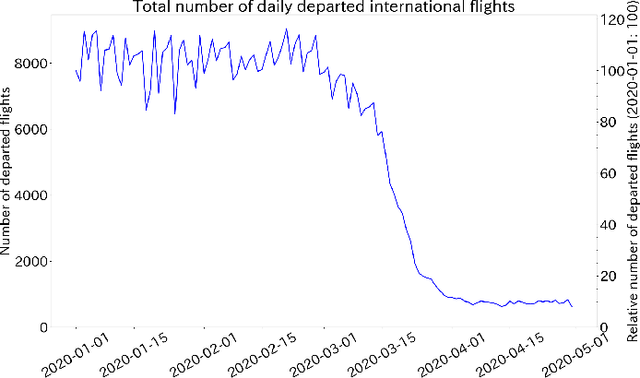
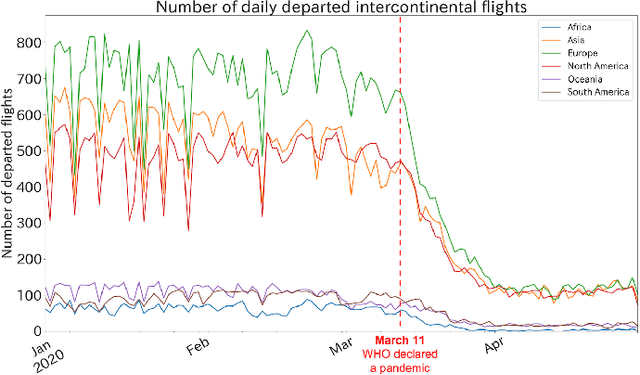
Abstract:As COVID-19 transmissions spread worldwide, governments have announced and enforced travel restrictions to prevent further infections. Such restrictions have a direct effect on the volume of international flights among these countries, resulting in extensive social and economic costs. To better understand the situation in a quantitative manner, we used the Opensky network data to clarify flight patterns and flight densities around the world and observe relationships between flight numbers with new infections, and with the economy (unemployment rate) in Barcelona. We found that the number of daily flights gradually decreased and suddenly dropped 64% during the second half of March in 2020 after the US and Europe enacted travel restrictions. We also observed a 51% decrease in the global flight network density decreased during this period. Regarding new COVID-19 cases, the world had an unexpected surge regardless of travel restrictions. Finally, the layoffs for temporary workers in the tourism and airplane business increased by 4.3 fold in the weeks following Spain's decision to close its borders.
 Add to Chrome
Add to Chrome Add to Firefox
Add to Firefox Add to Edge
Add to Edge